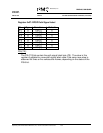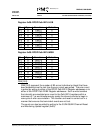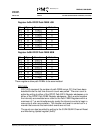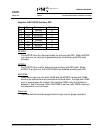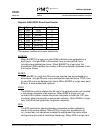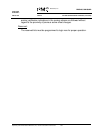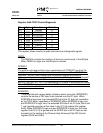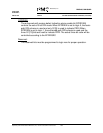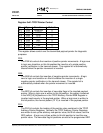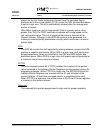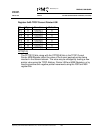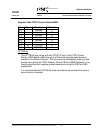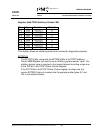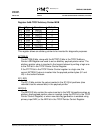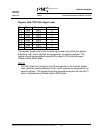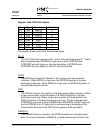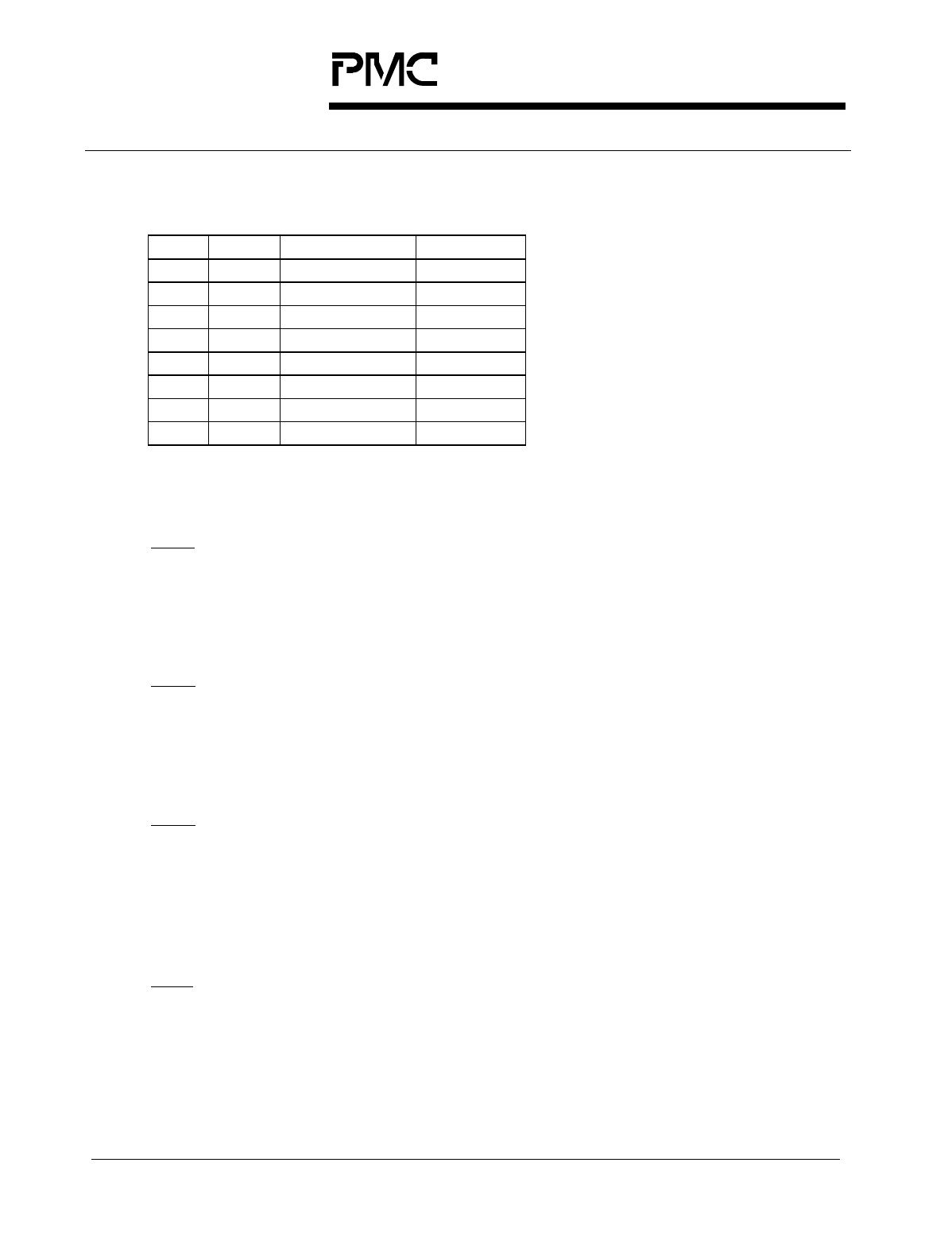
S/UNI-QUAD
PMC-Sierra, Inc.
PM5349 S/UNI-QUAD
DATASHEET
PMC-971239 ISSUE 6 SATURN USER NETWORK INTERFACE (155-QUAD)
Proprietary and Confidential to PMC-Sierra, Inc., and for its Customers’ Internal Use
124
Register 0x41: TPOP Pointer Control
Bit Type Function Default
Bit 7 R/W Reserved 0
Bit 6 R/W FTPTR 0
Bit 5 R/W SOS 0
Bit 4 R/W PLD 0
Bit 3 R/W NDF 0
Bit 2 R/W NSE 0
Bit 1 R/W PSE 0
Bit 0 R/W Reserved 0
This register allows control over the transmitted payload pointer for diagnostic
purposes.
PSE:
The PSE bit controls the insertion of positive pointer movements. A logic zero
to logic one transition on this bit enables the insertion of a single positive
pointer justification in the transmit stream. This register bit is automatically
cleared when the pointer movement is inserted.
NSE:
The NSE bit controls the insertion of negative pointer movements. A logic
zero to logic one transition on this bit enables the insertion of a single
negative pointer justification in the transmit stream. This register bit is
automatically cleared when the pointer movement is inserted.
NDF:
The NDF bit controls the insertion of new data flags in the inserted payload
pointer. When a logic one is written to this bit position, the pattern contained
in the NDF[3:0] bit positions in the TPOP Arbitrary Pointer MSB Register is
inserted continuously in the payload pointer. When a logic zero is written to
this bit position, the normal pattern (0110) is inserted in the payload pointer.
PLD:
The PLD bit controls the loading of the pointer value contained in the TPOP
Arbitrary Pointer Registers. Normally the TPOP Arbitrary Pointer Registers
are written to set up the arbitrary new pointer value, the S-bit values, and the
NDF pattern. A logic one is then written to this bit position to load the new
pointer value. The new data flag bit positions are set to the programmed NDF



